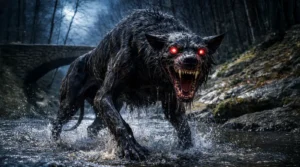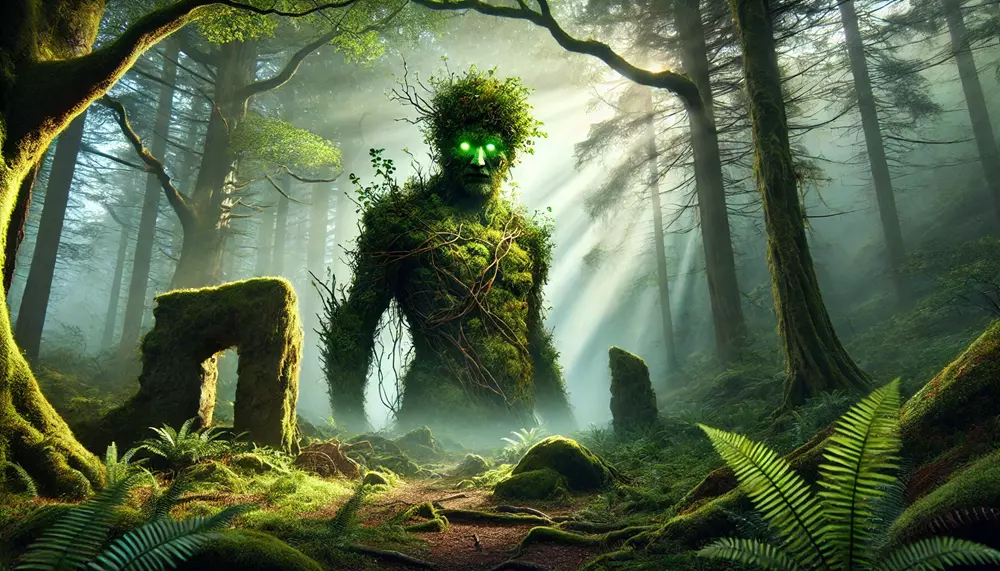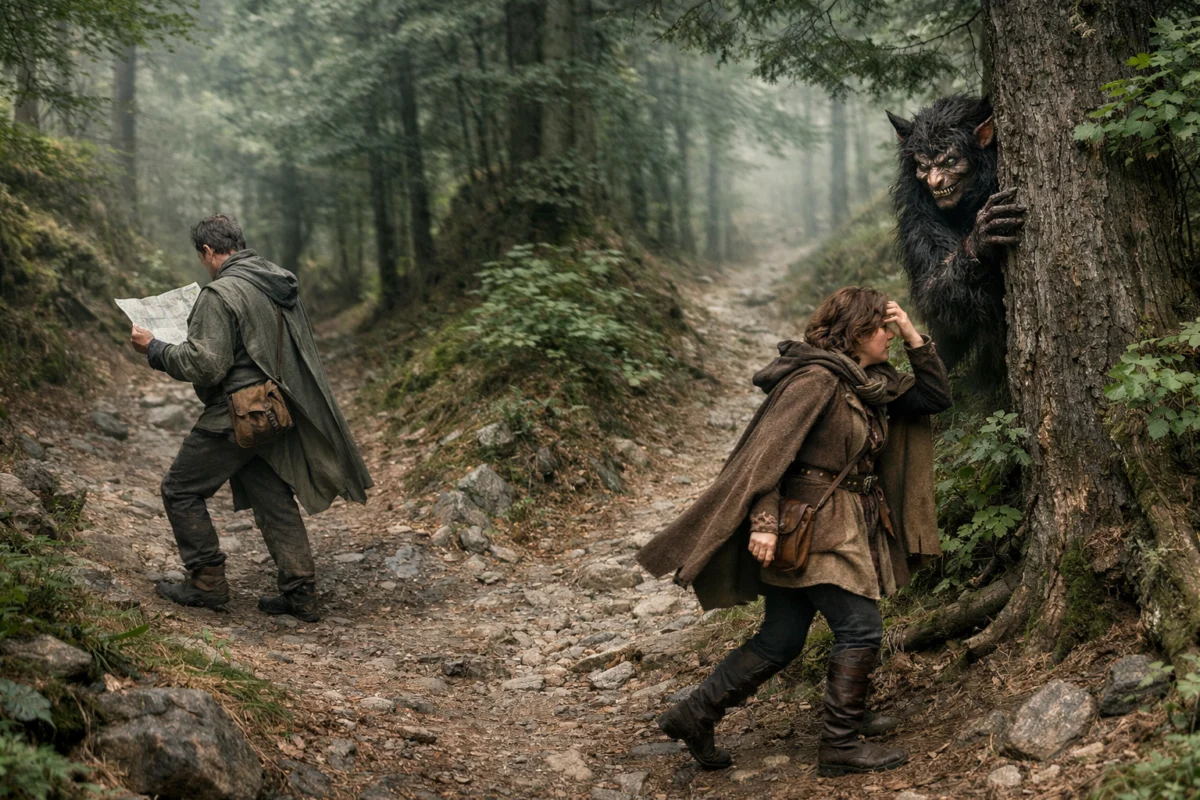Introduction
Azeban, the playful raccoon spirit from Northeastern Native American mythology, represents the lighthearted side of folklore. While many spirits embody profound lessons or fearful omens, Azeban’s stories deliver smiles and chuckles, teaching through pranks and harmless deceptions.
This raccoon character isn’t about terror; it’s about cleverness, curiosity, and a sprinkle of chaos that reminds us not to take life too seriously.
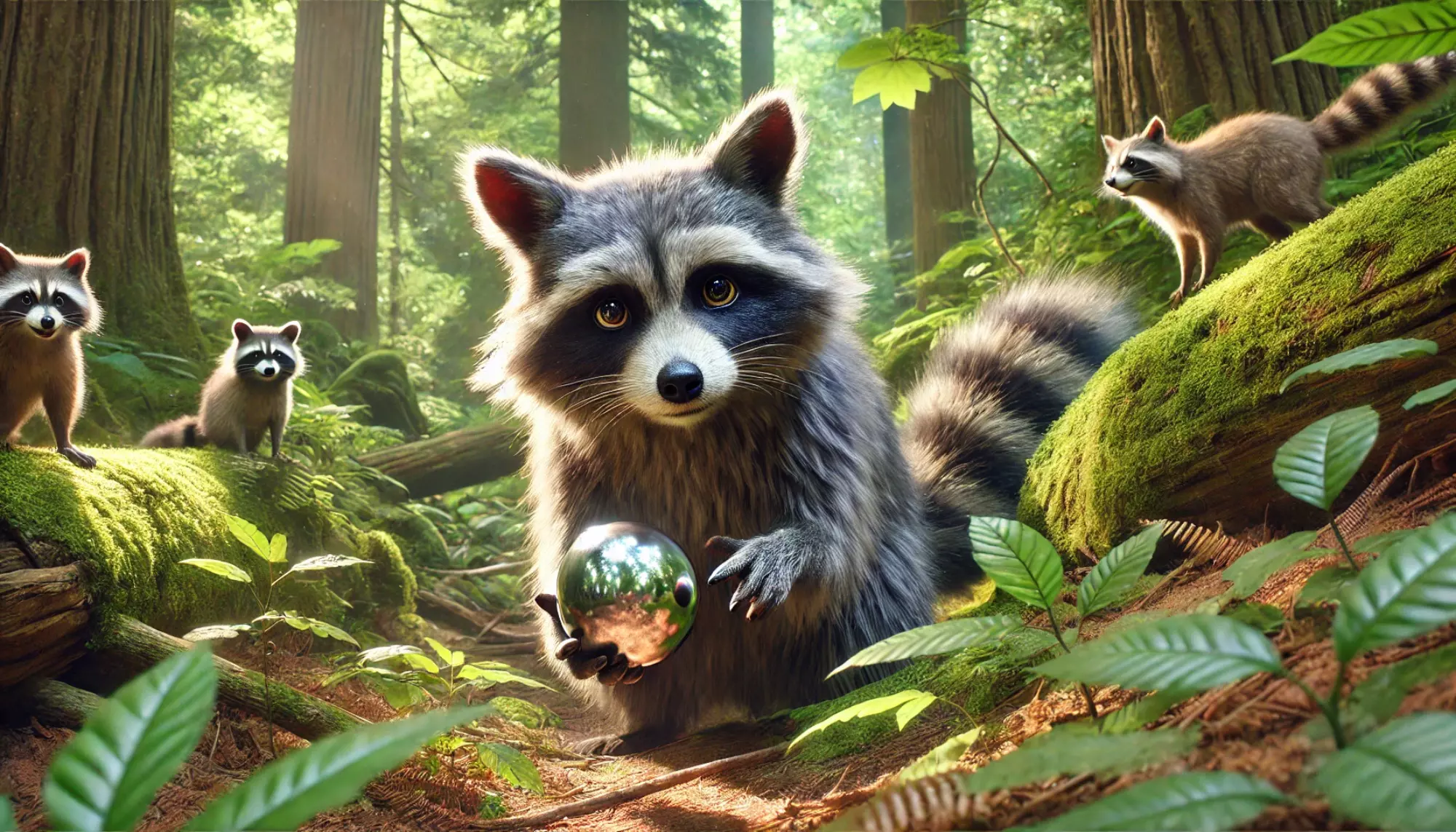
History/Origin
Azeban comes from the rich storytelling traditions of the Abenaki, an Indigenous people from the northeastern woodlands of North America. Stories of Azeban have floated through centuries of oral tradition, illustrating the raccoon spirit’s role as both a cultural icon and a moral teacher.
Early accounts of Azeban’s tales were collected by anthropologists in the 19th century, but the stories date back much further, deeply embedded in the daily lives and practices of the Abenaki and neighboring tribes. Unlike ominous spirits, Azeban is harmless, focused on antics that bring laughter and lessons rather than fear.
Name Meaning
The name “Azeban” translates loosely to “raccoon” or “deceiver” in the Abenaki language, hinting at the creature’s tricky nature. The term highlights Azeban’s identity as a prankster spirit who disrupts the routine for a bit of amusement.
The raccoon itself, often seen as cunning and adaptive, became the perfect animal symbol for this spirit, drawing on the raccoon’s natural behaviors, sneaking, exploring, and outsmarting, to embody Azeban’s mischievous soul.
Background Story
One of Azeban’s most famous tales involves his clever theft of a meal. In this story, Azeban approaches a bear who has caught a fish.
With wily eyes, he convinces the bear to join him in a game, where the bear leaves the fish unguarded for just a moment. Of course, Azeban seizes the opportunity, grabbing the fish and scurrying off.
The bear realizes the trick too late, only to hear Azeban’s laughter echoing through the forest.
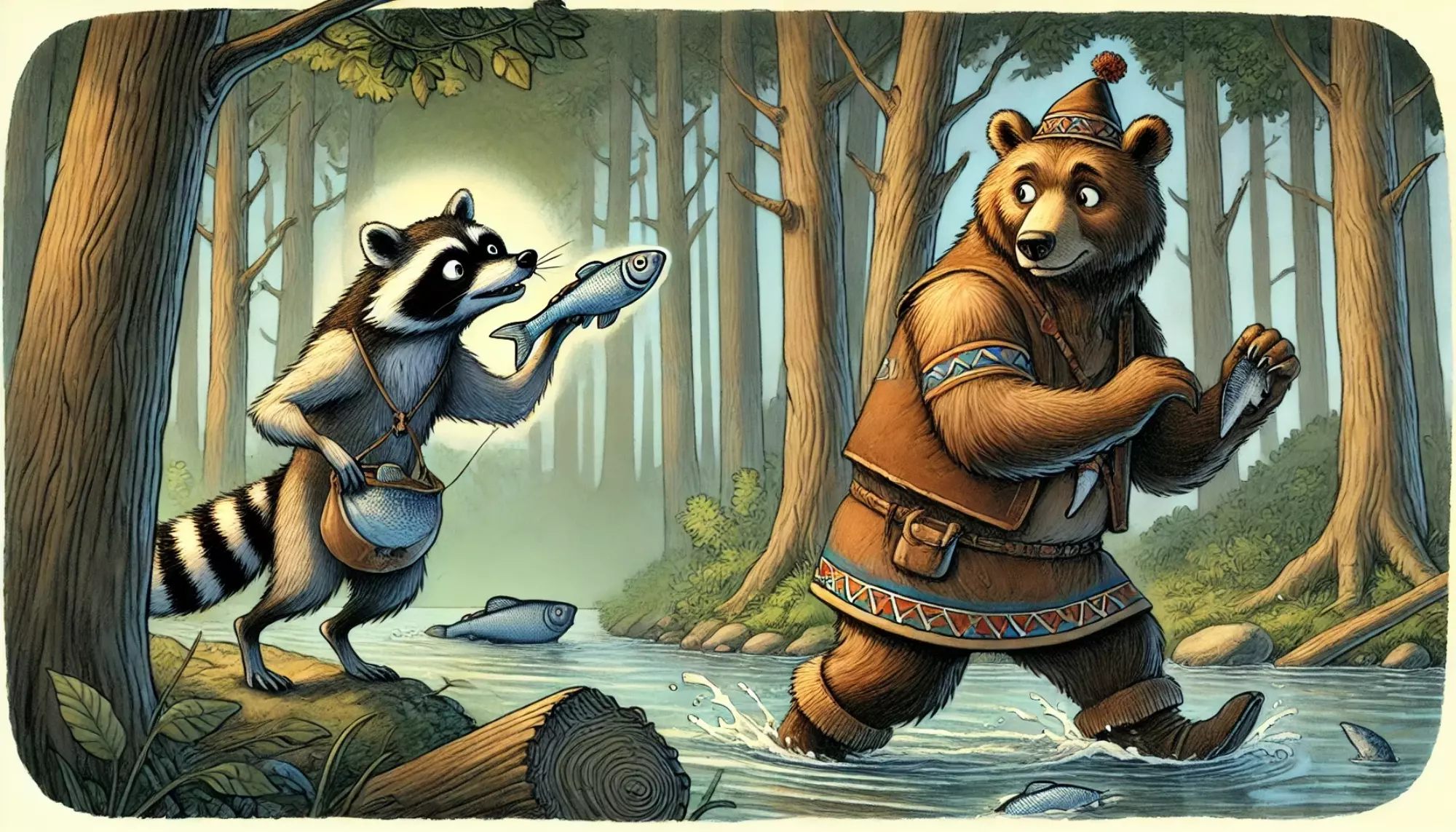
Other stories showcase Azeban pulling similar pranks on animals and even people, always with an undertone of humor. Through these light-hearted antics, the message is clear: Azeban doesn’t harm; he disrupts to reveal the importance of alertness and adaptability.
His pranks serve as reminders not to take life too seriously and to stay vigilant.
“Azeban, the raccoon trickster, taught us to laugh at ourselves.” (Abenaki Elder Tale Collection)
Cultural Impact
Azeban’s character influences Northeastern Native American folklore, where he serves as a symbol of humor and a reminder of the joy in life’s small disruptions. Unlike deities who demand respect and offerings, Azeban slips into stories more as a friend or humorous nuisance.
He became an emblem of resourcefulness, symbolizing the raccoon’s adaptability in the wild and resonating with the human need to laugh at our own mistakes. His playful spirit persists in modern retellings, captivating listeners with his wit and reminding us of the lighter side of Indigenous folklore.
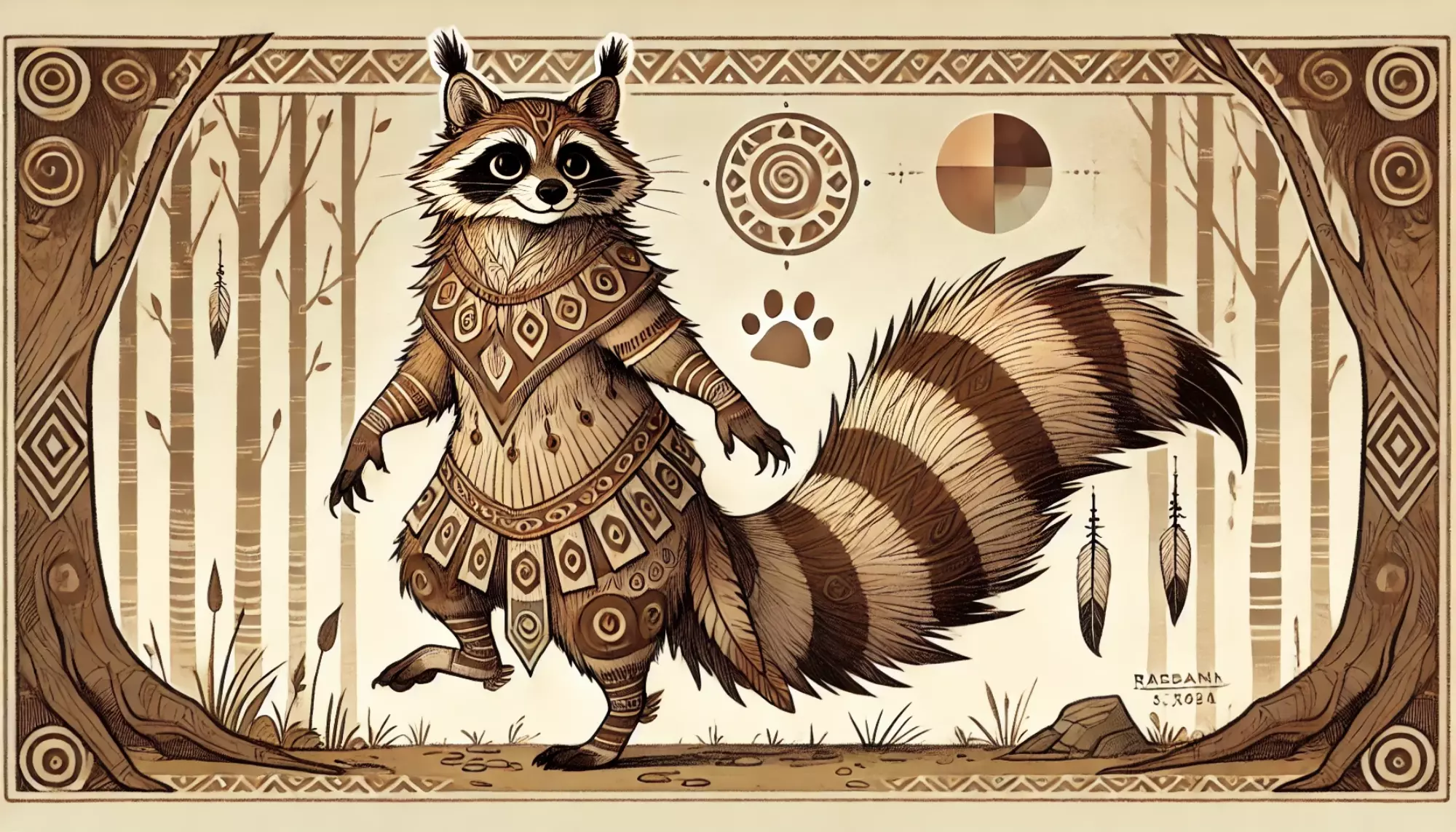
Similar Beasts
Many cultures have trickster spirits similar to Azeban. In Norse mythology, Loki embodies a chaotic yet clever force, sowing disruption among gods and humans alike.
In African folklore, Anansi the spider operates as a cunning trickster, using his wit to overcome challenges. Like Azeban, these figures teach moral lessons by challenging norms and disrupting expectations, illustrating that even small creatures can create significant impact through intelligence and mischief.
Religion/Ritual
Azeban’s character doesn’t directly connect to ritualistic worship or formal religious practices. Instead, he exists as a storytelling figure, passed down in Abenaki oral tradition.
Elders often share Azeban tales during gatherings or around the fire, using his antics to educate and entertain younger generations. While Azeban isn’t revered in the same sense as more powerful spirits or deities, his stories hold value, imparting lessons on resourcefulness, humility, and humor.
Through these narratives, he becomes a quiet presence within spiritual practices, reinforcing the Abenaki’s relationship with nature and its creatures.
“Azeban’s laughter is the laughter of the forest. It reminds us that not all spirits bring fear, some bring smiles.” (Traditional Abenaki Saying)
Scientific or Rational Explanations
Raccoons themselves, as adaptable and intelligent creatures, likely inspired Azeban’s creation in Abenaki folklore. Known for their ability to manipulate objects, solve puzzles, and remember solutions, raccoons frequently exhibit behaviors that seem cunning or even humorous to human observers.
Additionally, raccoons are notorious for scavenging and “stealing” food, traits that align perfectly with Azeban’s character. The connection between real animal behavior and mythological interpretation shows how Indigenous peoples merged observations of nature with storytelling, creating relatable and engaging figures like Azeban.
“We tell of Azeban not to fear him, but to remember that life isn’t always serious.” (Abenaki Elder Wisdom Collection)
Modern Cultural References
“Brother Bear” (2003) – Though Azeban isn’t directly mentioned, the raccoon characters capture his mischievous spirit, adding humor to the film.
Neil Gaiman’s “American Gods” – Anansi, the spider trickster, echoes similar qualities to Azeban, showing how trickster spirits endure in modern media.
Raccoon Meme Culture – Raccoons have become internet icons for their playful, sneaky behaviors, embodying Azeban’s personality for a new generation.
“Over the Hedge” (2006) – RJ, the raccoon character, embodies Azeban’s resourcefulness, outsmarting others to get what he wants.
“Fantastic Mr. Fox” by Roald Dahl – Though not a raccoon, the fox’s cunning and wit closely align with Azeban’s character.
Raccoon Symbolism in Native American Art – Azeban’s image sometimes appears in modern Native-inspired art as a symbol of cleverness and humor.
Animal Planet’s “The Raccoon Whisperer” – This documentary highlights the raccoon’s intelligence and adaptability, reinforcing Azeban’s qualities.
“Guardians of the Galaxy” – Rocket Raccoon’s personality and trickster nature resemble Azeban, bridging myth and pop culture.

Instagram’s Raccoon Influencers – Accounts dedicated to “pet” raccoons showcase their clever, Azeban-like behaviors, gaining millions of followers.
Canadian Wildlife Foundation Campaigns – These campaigns often depict raccoons as charming “urban tricksters,” tapping into Azeban’s archetype.
Conclusion
Azeban, the trickster raccoon spirit of Abenaki lore, stands as a unique figure in folklore that merges humor with wisdom. Through his tales, listeners learn to see the importance of adaptability, humor, and caution.
Unlike terrifying or divine spirits, Azeban brings a touch of levity to Abenaki stories, reminding people of the joy in mischief and the power in cleverness. In today’s world, Azeban’s playful nature endures, reflecting our collective need to approach life with a balance of seriousness and laughter.
His story shows that sometimes, the smallest creature teaches the biggest lessons, proving that intelligence and a sense of humor can make a mark on any world.
“Azeban’s mischief is not to harm, but to teach us to see the world with open eyes and a laughing heart.” (Abenaki Proverb)


